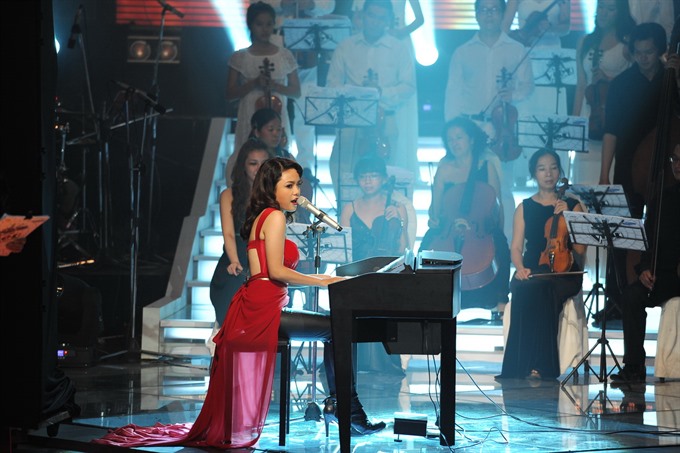 Life & Style
Life & Style

The Việt Nam Music Copyright Protection Centre collected VNĐ72 billion (US$3.2 million) in royalties last year for registered composers and songwriters, an increase of 7 per cent over last year.
 |
| More singers are now aware that payments are required for use of copyrighted songs. - VNSphoto |
HCM CITY - The Việt Nam Music Copyright Protection Centre collected VNĐ72 billion (US$3.2 million) in royalties last year for registered composers and songwriters, an increase of 7 per cent over last year.
The centre’s director, musician Phó Đức Phương, said this year the amount would increase sharply as royalties would be collected from hotels, karaoke parlours, nightclubs and other entertainment providers.
“Only VNĐ400 million (US$19,000) of royalties for writers and composers came from the sales of videos and CDs [because] we are facing rapid growth of online music.”
He said that controlling the use of works by people who “ignore royalties” was a problem facing the centre.
Last year, the centre collected more than VNĐ8 billion ($355,000) from use of music websites, an increase of 87 per cent compared to 2015. .
It collected VNĐ52 billion ($2.3 million) in royalties in the south while the number was VNĐ20 billion ($900,000) in the north.
The highest royalties were paid to late songwriter Trịnh Công Sơn, veteran composer Thanh Sơn, and young musicians Khánh Đơn, Nguyễn Hồng Thuận and Nguyễn Văn Chung.
The country’s first organisation to protect songwriters and composers from copyright infringement has signed more than 1,700 contracts with music producers and entertainment companies.
It has also collected and paid royalties to nearly 3 million foreign citizens and foreign organisations through its foreign counterparts.
After the centre became a member of the International Confederation of Societies of Authors and Composers in 2007, Vietnamese composers had copyright protection when their work was performed or recorded abroad.
Foreign musical products used in Việt Nam are given the same protection as domestically produced work.
"We need the Government’s help to enforce the rights of composers, songwriters and users as stipulated in the Intellectual Property Law, which took effect in 2006," said Phương, adding that paying royalties for use of music was no easy task.
Young singer Thùy Dung of District 1’s Cultural House, said: "One of our biggest problems is that we don’t know where and how to contact artists to make copyright deals."
Nguyễn Văn Chung, a young composer, said he and his friends often performed in charity shows in rural areas.
“I think we don’t need to pay for the right to use it for charity purposes. Is that right? Cultural authorities should help us understand copyright protection and how it can be used effectively, particularly for those of us working in rural areas," he said.—VNS